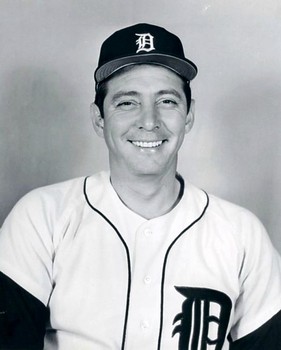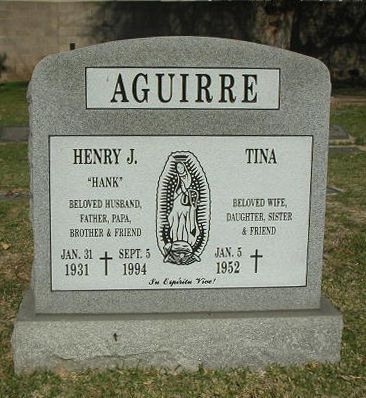HHankeHanknHankrHankyHank HankJHankoHankhHanknHank HankâHankHankHankHHankaHanknHankkHankâHankHankHank HankAHankgHankuHankiHankrHankrHankeHank (Henry John Aguirre)

Nicknamed “Mex” because he was of Mexican descent, Aguirre was born on January 31, 1931, in Azusa, California to Jenny Alva and Joseph Aguirre. Joseph was born in Jalisco, Mexico in 1902 and emigrated with his family during the time of the Mexican Revolution. Joseph and Jenny had seven children. Henry (Hank) Aguirre worked in his youth making, packaging and delivering tortillas for his father’s business, the “Aguirre Tortillas Factory” in San Gabriel. At 4 a.m., the young Aguirre would make deliveries â mostly running â before school. Hank attended and graduated from Mark Keppel High School in Alhambra in 1949 but his “goofy feet” (his words) prevented him from being selected to be part of the baseball team. Hank graduated from East Los Angeles Junior College in 1951.
As a rookie for the Cleveland Indians in 1956, Aguirre struck out Boston Red Sox legend Ted Williams the first time he faced him. After the game, Aguirre asked Williams to autograph the ball. Reluctantly, Williams complied. A couple of weeks later Aguirre faced Williams again. This time the “Splendid Splinter” smashed Aguirre’s first offering for a home run. While circling the bases, Williams yelled to Aguirre, “Get that ball, and I’ll sign it, too.”
He pitched in the big leagues for 16 years for four different teams. Before the 1958 season began, Aguirre was traded to the Detroit Tigers, where he remained for 10 years from 1958 to 1967. Aguirre was principally a relief pitcher until 1962. During a 1962 game at Yankee Stadium, Tigers manager Bob Scheffing used him as a starter when Don Mossi had arm trouble. Scheffing wanted a left-hander to pitch against the Yankees, and he chose Aguirre. Aguirre joined the Tigers starting rotation and finished the 1962 season with a 2.21 earned run average (ERA) in 42 games (22 as a starter), the best in Detroit since Hal Newhouser in 1946. Having pitched over 100 innings (216 in total) for the first time in his career, Aguirre led the Major Leagues in ERA (0.33 points lower than Sandy Koufax who was second best), won 16 games, and was selected to the American League All-Star team. He also led the American League in WHIP (walks plus hits per innings pitched) with a 1.051 average. Aguirre also finished 17th in the 1962 American League Most Valuable Player voting.
Aguirre lost his spot in the Tigers starting rotation in 1966, and returned to the bullpen. Before the start of the 1968 season, Aguirre was traded by the Tigers to the Los Angeles Dodgers for a player to be named later. In one season with the Dodgers, Aguirre allowed only three runs in 391â3 innings for a 0.69 ERA. Despite the good season, Aguirre was released by the Dodgers and spent the final two seasons of his big league career pitching for Leo Durocher’s Chicago Cubs where he was 4â0 in two seasons from 1969â1970. Â In 16 Major League seasons, Aguirre finished with a record of 75â72 in 1,3752â3 innings pitched, with 856 strikeouts and an ERA of 3.24. Â Aguirre had a reputation as one of baseball’s worst-hitting pitchers. He had an .085 lifetime average, going 33-for-388 at the plate, with no home runs, striking out 236 times while drawing 14 walks.
In 1979, with the encouragement and support of Jack Masterson, an executive with Volkswagen of America, and attorney John Noonan, Aguirre founded Mexican Industries, Inc. The company, based in Detroit, operated as a labor-intensive, minority-oriented enterprise that supplied specialized parts to American automobile manufacturers. After a difficult start, Mexican Industries thrived during the 1980s, becoming a multi-million-dollar business and creating hundreds of jobs (primarily for the Hispanics of southwestern Detroit’s “Mexicantown”). In 1987 Aguirre was named “Businessman of the Year” by the U.S. Hispanic Chamber of Commerce.
Hank Aguirre died on September 5, 1994, following a two-year battle with prostate cancer. He is buried in San Gabriel, California in the churchyard of the (Roman Catholic) Mission San Gabriel Arcángel, “where he worshiped as a boy.” Upon his death, control of the privately owned company Aguirre had founded passed to his adult children. In 1999, Mexican Industries, Inc., was unionized (following several unsuccessful attempts over the previous two decades) by the United Auto Workers labor union under Bob King. In 2001, the firm filed for bankruptcy, laid off its workers, and subsequently closed its doors. According to union activists, “Workers blame[d] the owners, not only for hostility toward their union but for mismanaging the company.”
Born
- January, 31, 1931
- USA
- Azusa, California
Died
- September, 05, 1994
- USA
- Bloomfield Hills, Michigan
Cemetery
- San Gabriel Mission Cemetery
- San Gabriel, California
- USA


